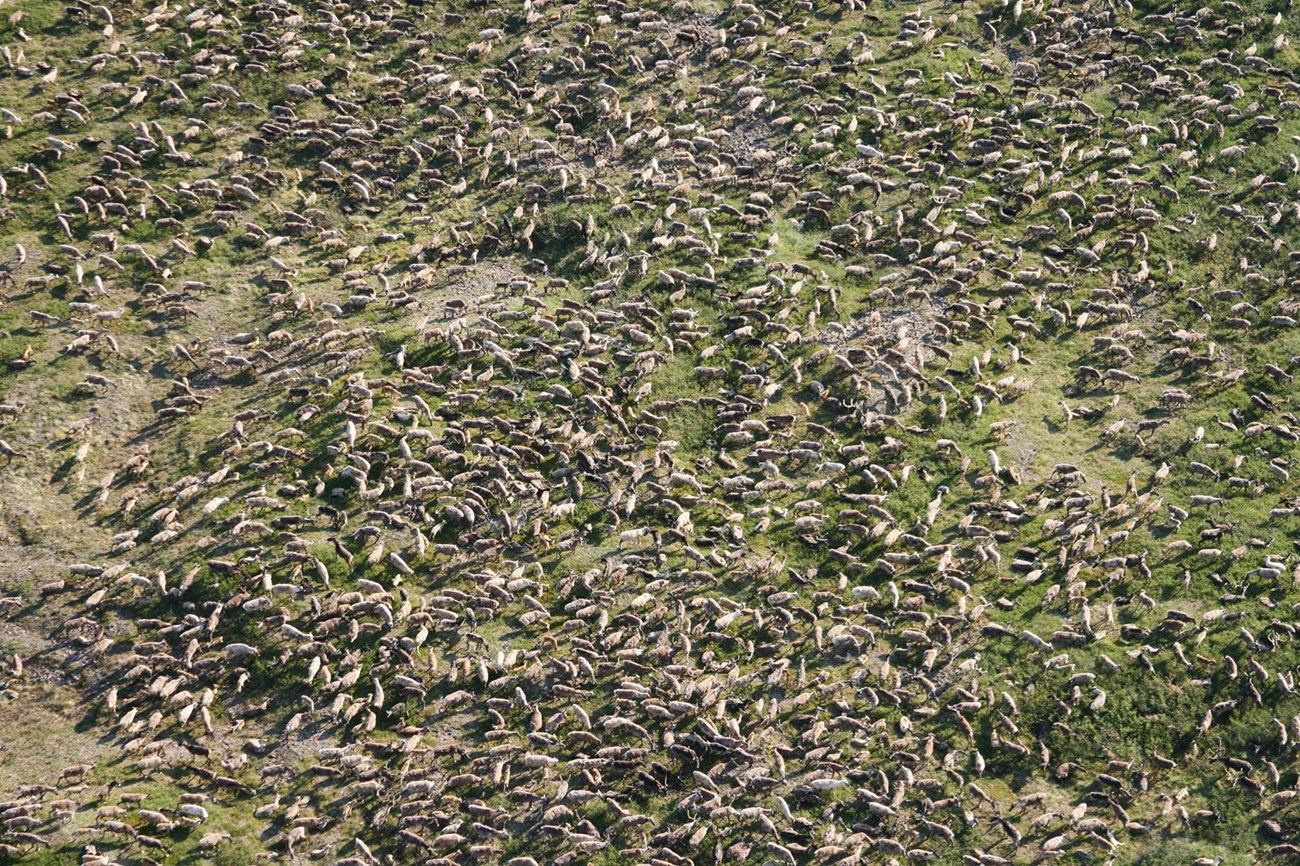
NPS/Jared Hughey Caribou are a member of the deer family; they eat lichen, moss, grass, and other low-growing plants. their hair is hollow, and holds heat well. Caribou have special feet that spread apart, helping them walk on snow and spongy tundra, and swim. Tendons in their feet click when they walk. Most Western Arctic Herd, Teshekpuk Herd, Central Arctic Herd, and the Porcupine Herd caribou; totaling over half a million animals, migrate through the Central Brooks Range moving to the north slope for summer and to the south side of the mountains in winter. The large numbers of caribou migrating over vast distances support and affect many animal and plant species. They are a food source for people, bears, wolverines, and wolves. By browsing and grazing, caribou help shape habitats; they can have substantial effects on plant an lichen communities which in turn affect wildlife communities. For those living a subsistence lifestyle, caribou are a lifeline. They are a main subsistence food source for Native residents in arctic Alaska. Many of these subsistence users identify themselves as "caribou people" revealing just how deeply rooted caribou are in the history, traditions, and psyche of the people in this region. Park scientists are focusing research and monitoring efforts on the Western Arctic Caribou Herd. It is the largest herd in Alaska and is accessed by the most villages in the Arctic. To monitor the herd, scientists are using technology to track the herd to determine the timing and location of migrations. Monitoring where caribou are during different seasons is perhaps the simplest means to track the influence of climate change, natural disruptions, development, and other potential impacts. Caribou are a "Vital Sign" for the Arctic Network Inventory and Monitoring Program (ARCN). Information gathered from research and monitoring will be used to:
|
Last updated: November 17, 2022
